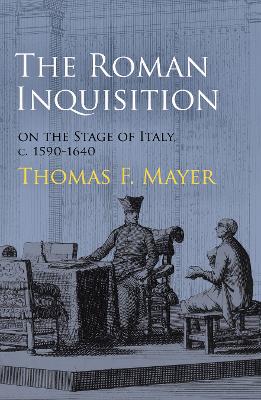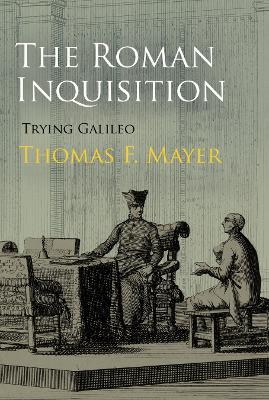Haney Foundation
2 total works
The Roman Inquisition on the Stage of Italy, c. 1590-1640
by Thomas F. Mayer
From the moment of its founding in 1542, the Roman Inquisition acted as a political machine. Although inquisitors in earlier centuries had operated somewhat independently of papal authority, the gradual bureaucratization of the Roman Inquisition permitted the popes increasing license to establish and exercise direct control over local tribunals, though with varying degrees of success. In particular, Pope Urban VIII's aggressive drive to establish papal control through the agency of the Inquisition played out differently among the Italian states, whose local inquisitions varied in number and secular power. Rome's efforts to bring the Venetians to heel largely failed in spite of the interdict of 1606, and Venice maintained lay control of most religious matters. Although Florence and Naples resisted papal intrusions into their jurisdictions, on the other hand, they were eventually brought to answer directly to Rome-due in no small part to Urban VIII's subversions of the law.
Thomas F. Mayer provides a richly detailed account of the ways the Roman Inquisition operated to serve the papacy's long-standing political aims in Naples, Venice, and Florence. Drawing on the Inquisition's own records, diplomatic correspondence, local documents, newsletters, and other sources, Mayer sheds new light on papal interdicts and high-profile court cases that signaled significant shifts in inquisitorial authority for each Italian state. Alongside his earlier volume, The Roman Inquisition: A Papal Bureaucracy and Its Laws in the Age of Galileo, this masterful study extends and develops our understanding of the Inquisition as a political and legal institution.
Few legal events loom as large in early modern history as the trial of Galileo. Frequently cast as a heroic scientist martyred to religion or as a scapegoat of papal politics, Galileo undoubtedly stood at a watershed moment in the political maneuvering of a powerful church. But to fully understand how and why Galileo came to be condemned by the papal courts-and what role he played in his own downfall-it is necessary to examine the trial within the context of inquisitorial law.
With this final installment in his magisterial trilogy on the seventeenth-century Roman Inquisition, Thomas F. Mayer has provided the first comprehensive study of the legal proceedings against Galileo. By the time of the trial, the Roman Inquisition had become an extensive corporatized body with direct authority over local courts and decades of documented jurisprudence. Drawing deeply from those legal archives as well as correspondence and other printed material, Mayer has traced the legal procedure from Galileo's first precept in 1616 to his formal trial in 1633. With an astonishing mastery of the legal underpinnings and bureaucratic workings of inquisitorial law, Mayer's work compares the course of legal events to other possible outcomes within due process, showing where the trial departed from standard procedure as well as what available recourse Galileo had to shift its direction.
The Roman Inquisition: Trying Galileo presents a detailed and corrective reconstruction of the actions both in the courtroom and behind the scenes that led to one of history's most notorious verdicts.

